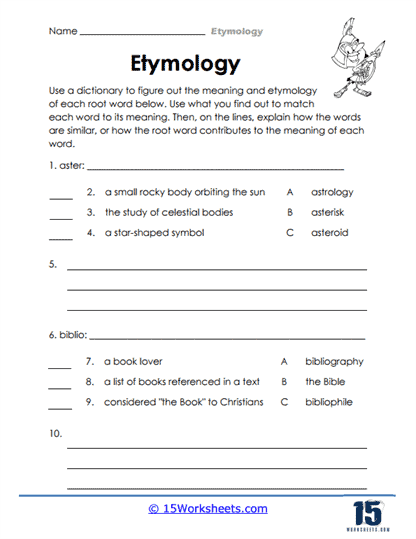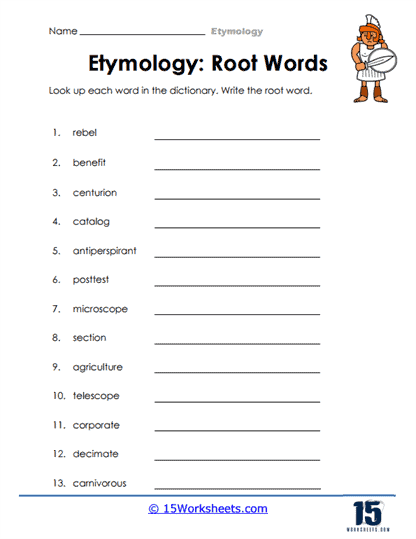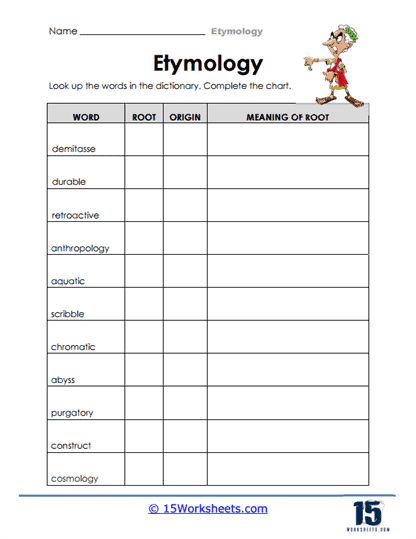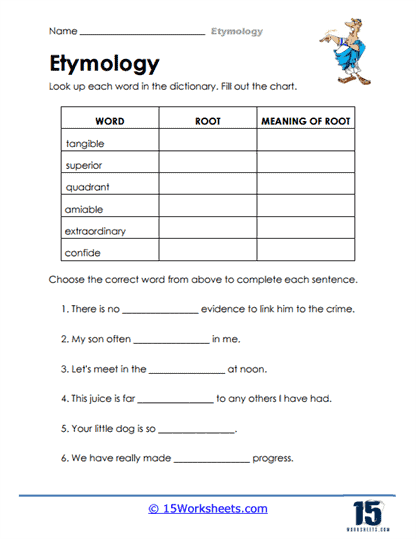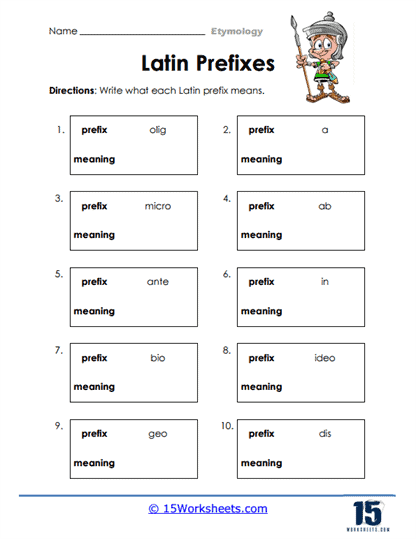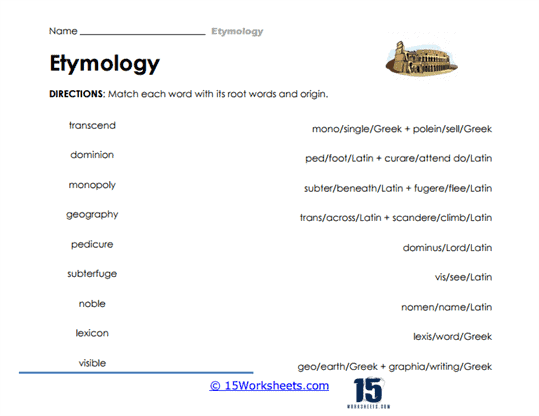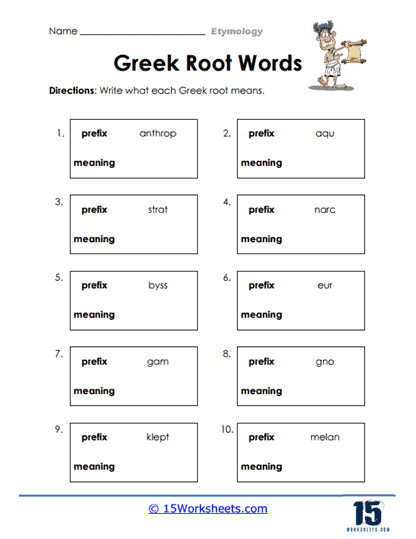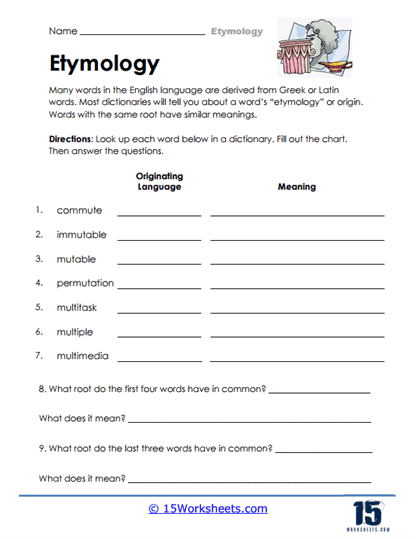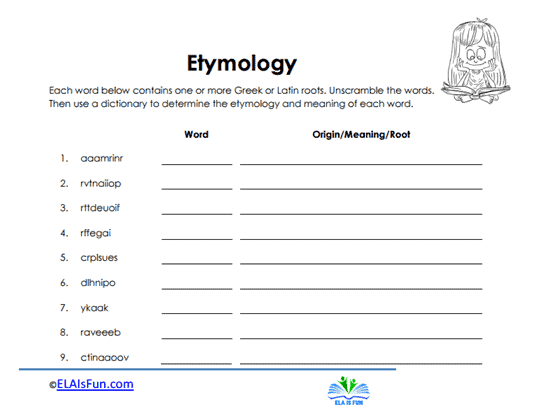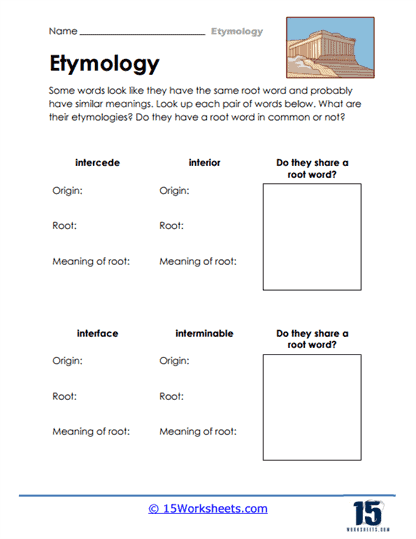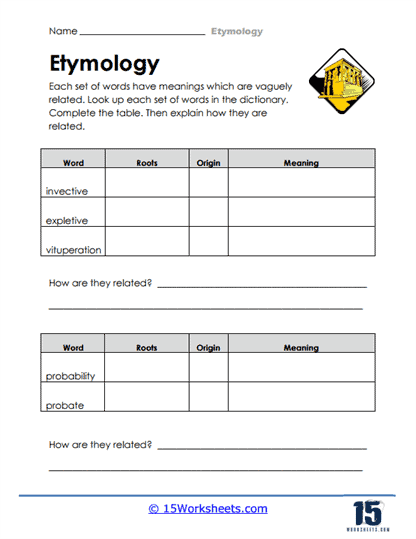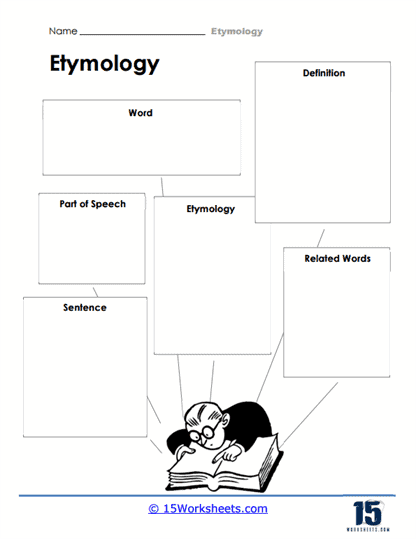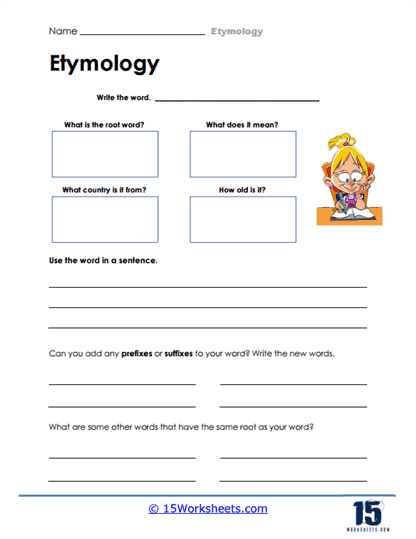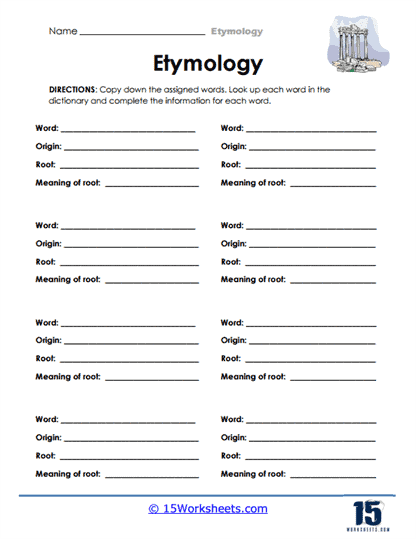Etymology Worksheets
All About These 15 Worksheets
This series of 15 worksheets is designed to help students learn and explore the fascinating world of etymology, which is the study of the origins and evolution of words. The exercises in these worksheets aim to teach students the history and evolution of words, and how their meanings have changed over time. Through these worksheets, students will:
- Use a dictionary to figure out the meaning and etymology of various root words;
- Identify the root word, the origin, and the meaning of various words;
- Write the meaning of different Latin prefixes and Greek root words;
- Identify the Latin roots of words by investigating context clues;
- Match words to their root words and origin;
- And determine whether pairs of words share the same root word.
Learning etymology can be an engaging and effective way for students to expand their vocabulary, deepen their understanding of language, and develop their critical thinking skills. By understanding the origins and evolution of words, students can learn to make connections between different words, improve their ability to use language, and gain a deeper understanding of different cultures and historical periods.
Overall, these worksheets provide an excellent resource for teachers and homeschooling parents who are looking to incorporate the study of etymology into their language arts curriculum. By completing these exercises, students can develop their vocabulary, critical thinking, and research skills, while also gaining a deeper appreciation for the power and complexity of language.
What is Etymology?
Etymology is the study of the origins, history, and evolution of words, their meanings, and their components. It involves tracing the development of a word from its earliest known use to its current form, exploring how its meaning has changed over time, and examining the linguistic and cultural influences that have shaped it. Etymologists analyze words by looking at their roots, prefixes, suffixes, and the languages from which they were borrowed or adapted.
Understanding etymology can provide valuable insights into the history of languages, cultures, and societies, as well as the way people have thought and communicated over time. It can also help to:
Enhance Vocabulary
Learning the etymology of words can make it easier to understand, remember, and use new words correctly, as it reveals the underlying logic and connections between related words.
Improve Language Skills
Knowledge of etymology can improve language proficiency, reading comprehension, and writing skills, as it helps to clarify the nuances and shades of meaning in words and phrases.
Facilitate Language Learning
When learning a foreign language, understanding the etymology of words can provide clues about their meanings and usage, making it easier to remember and apply new vocabulary.
Foster Critical Thinking
Studying etymology encourages a deeper, more analytical approach to language, promoting critical thinking and curiosity about the origins and development of words.
Appreciate Cultural Diversity
Etymology reveals the connections and influences between different languages and cultures, fostering a greater appreciation of linguistic and cultural diversity.
In summary, etymology is the study of the origins and evolution of words, which can offer valuable insights into language, culture, and history. It can also enhance vocabulary, improve language skills, facilitate language learning, foster critical thinking, and promote an appreciation of cultural diversity.

